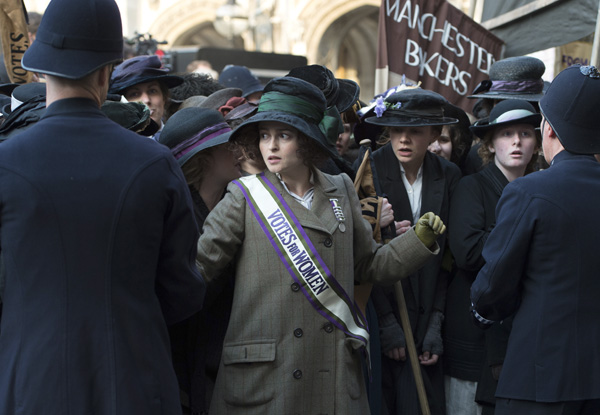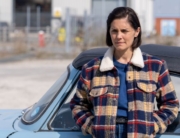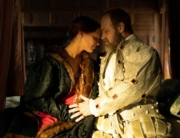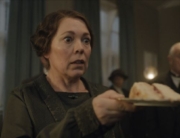Women voting, no big deal, right? But it is. For centuries, British women not only lacked the vote but enjoyed no rights within the home. Requests for justice were met with immovable male condescension until the requests escalated into demands and women activists embarked on a Weather Underground-style insurgency. Contrary to their prim image today, they threw rocks, blew things up, and sacrificed their lives, and Suffragette wants to remind us of their struggle. This genteel film brings an edge of excitement to the fight, but a leaner narrative and more energy would have fully brought it to life.
The movie opens in a grim, gray laundry where hissing machinery emits toxic chemicals. The year is 1912, but it might as well be a Dickensian 1848. Skilled laundress Maude Watts (Carey Mulligan) goes for a well-deserved walk after a grueling workday and comes across a wild sight: women smashing high-end department store windows in broad daylight. At first wary of this act of civil disobedience, Maude is drawn into the women’s rights movement with the help of a raffish workmate (Anne-Marie Duff), a crusading woman pharmacist (Helena Bonham Carter), and a rapidly accumulating series of misfortunes that make plain to her how low her status really is. Maude and her comrades prepare to appeal to Parliament, go to prison, and take part in more and more dangerous acts—the game is on.
The movie has some strong cards to play. After a series of almost sheepishly self-conscious appearances (Far from the Madding Crowd), Carey Mulligan redeems herself with a steely, determined performance able to withstand the exaggerated scenarios thrown at her by the script. Defiant Maude faces off with an inspector (Brendan Gleeson) who pursues her like a cold, implacable Javert, and their showdowns are nervy and thrilling. Turn of the century surveillance techniques, surprisingly advanced, add an unexpected touch of Cold War espionage to the story. Suffragette makes shrewd points about class, and scenes of wanton damage to property are exhilarating if too fleeting in a busy flow of strikes and counterstrikes.
On the downside, Suffragette over-eggs the pudding in familiar ways. Maude’s firebrand deeds endanger her relationship with her husband (Ben Whishaw). When he throws her out after she spends one night too many away from the hearth, it’s an uneasy reminder that a man could cut his wife off from her home and sever her from her child with the slam of a door. The movie won’t be content with that stark revelation. It goes on to pile Calamity Jane misfortune upon an act of predatory discrimination upon rank injustice on Maude’s head.
Throughout, one senses an internal fight within the film to achieve something stronger and more dynamic. Director Sarah Gavron relies on multiple crowd scenes for action, but they play out statically. Testament of Youth, a recent film set in the same period, masterfully used crowd movement to convey a sense of being caught up in sweeping historical events; Suffragette could use some of the same verve. Speeches on the feminist cause aim to be pithy yet lofty (“If you want to make me respect the law, make the law respectable”), but fall short of both. Meryl Streep puts in a doughty cameo as suffragette leader Emmeline Pankhurst, laying on a Lady Bracknell accent. Let’s just say it will delight her fans.
If Suffragette were a pop song, it would end with a fade-out. A dramatic act of martyrdom is followed by a newsreel from the period and milestone dates in the suffrage movement. Perhaps this is a letdown or just a reminder that justice takes time. Good manners and fire are at war in this movie, and in the end good manners beat fire, but I wonder if nice would have finally won the vote.







Leave A Comment